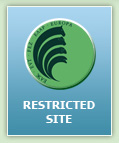Important Notice
For more information about the EAAP Researchers' database, please browse here.
Sessions and Book of Abstracts of the EAAP Annual Meeting, Nantes 2013
SESSIONS
- Session 01. Genomic selection: impact on the organisation of the breeding sector
- Session 02. Carcass and meat quality: from measurement to payment
- Session 03. New advances in biotechnology of equine reproduction
- Session 04. Redesigning selection objectives to account for long-term challenges
- Session 05a. New feed systems for ruminants
- Session 05b. Hot topic. Alternative and novel protein sources for livestock
- Session 06a. Aquaculture nutrition in the context of animal nutrition: common issues and differences
- Session 06b. Industry session. Automation in livestock farming
- Session 07. Sustainable animal production in the tropics and high constraint areas: multidisciplinary approaches
- Session 08. Social genetic effects: free communications
- Session 09. Animal health and welfare in loose housing and free range systems
- Session 10. How can the farmers benefit from genomic information?
- Session 11. The role of imported genetics for sustainable breeding programmes
- Session 12. Beef production: environmental and economic aspects and impact
- Session 13a. Sow nutrition to cope with increased reproductive potential
- Session 13b. Enriching environment and improving comfort in intensive indoor systems
- Session 14. Genetic control of adaptation
- Session 15a. Integrated management of animal health to reduce usage of veterinary pharmaceuticals
- Session 15b. Modulation of the immune defence system to cope with antibiotic use reduction
- Session 16. Advances in genomic analysis and prediction: 1
- Session 17. Dairy farming after 2015: sector, farm management and cow aspects
- Session 18. The new equine economy: growth in new sectors and activities in the 21st Century
- Session 19. Milking physiology of sheep and goats
- Session 20a. Welfare and mortality aspects of sheep and goat production
- Session 20b. Sheep and Goat production: Economics and marketing
- Session 21a. Multi-species database of feeding values of animal feed for warm countries
- Session 21b. Use of knowledge in animal nutrition in specifications for ‘label’ and other higher quality production systems
- Session 22a. Services provided by livestock farming systems: ecological, economic and social dimensions
- Session 22b. LFS innovations for local/rural development
- Session 23a. Effects of high temperature on reproductive physiology
- Session 23b. Physiological biomarkers of stress and production diseases
- Session 24. Plenary Session
- Session 25. Free communications: Molecular genetics
- Session 26a. Cattle Debate: New production methods and society’s response
- Session 26b. Cattle Debate: Free communications
- Session 27. Horse: Free Communications
- Session 28. Sheep and Goats: Free Communications
- Session 29. Pigs: Free Communications
- Session 30. Nutrition: Free communications
- Session 31. Livestock Farming Systems: Free communications
- Session 32. Physiology: Free communications
- Session 33. Health and welfare: Free communications
- Session 34. Advances in genomic analysis and prediction: 2
- Session 35. Young train: Young scientists’ session: Challenges and aspects of food production
- Session 36. Behavioral evaluation of the working horse
- Session 37. Ethical aspects of breeding
- Session 38. Group housing of sows
- Session 39a. Industry session. Feed additives: Impact on health and performance in livestock
- Session 39b. Pigs: Free communications
- Session 40. Robust and resilient livestock farming systems in a changing world
- Session 41. Cellular physiology of secretory processes
- Session 42. Breeding in low input production systems
- Session 43. One day Symposium on South American Camelids and Other Fibre Animals
- Session 44. Improving fertility and udder health
- Session 45. Feed efficiency: Physiological and genetic mechanisms
- Session 46. Tools and technologies for the exploitation of Livestock genomes
- Session 47. Gut health and immune response in monogastric animals
- Session 48. Cattle production in a changing policy environment in Europe
- Session 49. Management and nutrition of entire male growing pigs (not boar taint)
- Session 50. Evaluation of intrinsic and extrinsic qualities of cattle, dairy and meat products
- Session 51a. Education in Animal Science for the future
- Session 51b. Well-functioning dogs
- Session 52. Feed efficiency in ruminants
- Session 53. Feed efficiency in non-ruminants
- Session 54. Recent results provided by genomic tools in sheep and goats
- Session 55. Free communications in cattle genetics
- Session 56a. Emergent and re-emergent diseases of livestock
- Session 56b. Design and evaluation of control plans for infectious diseases with epidemiological models
- Session 57. Generating, handling and exploiting very large data for management and breeding
- Session 58. Cattle: Free communications

